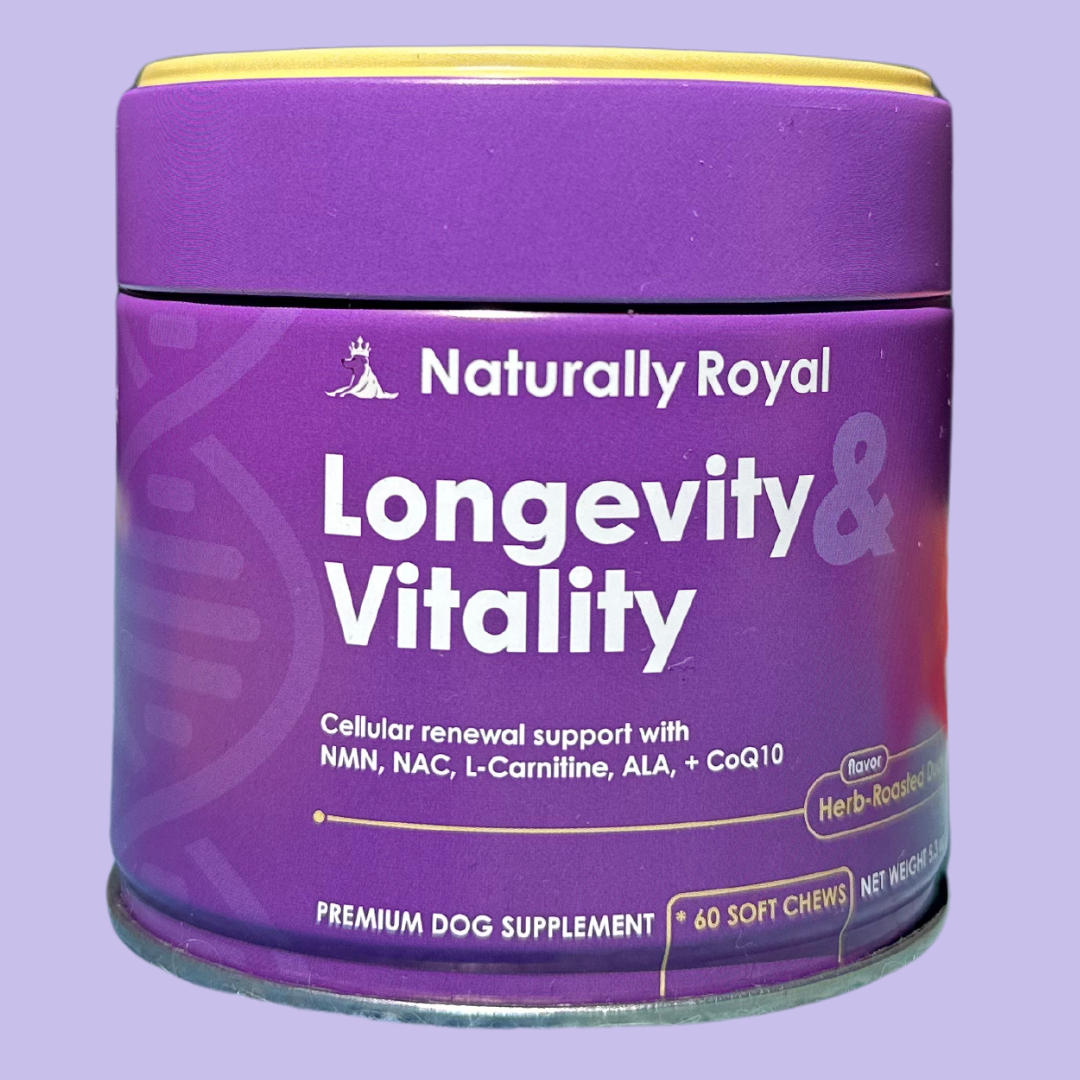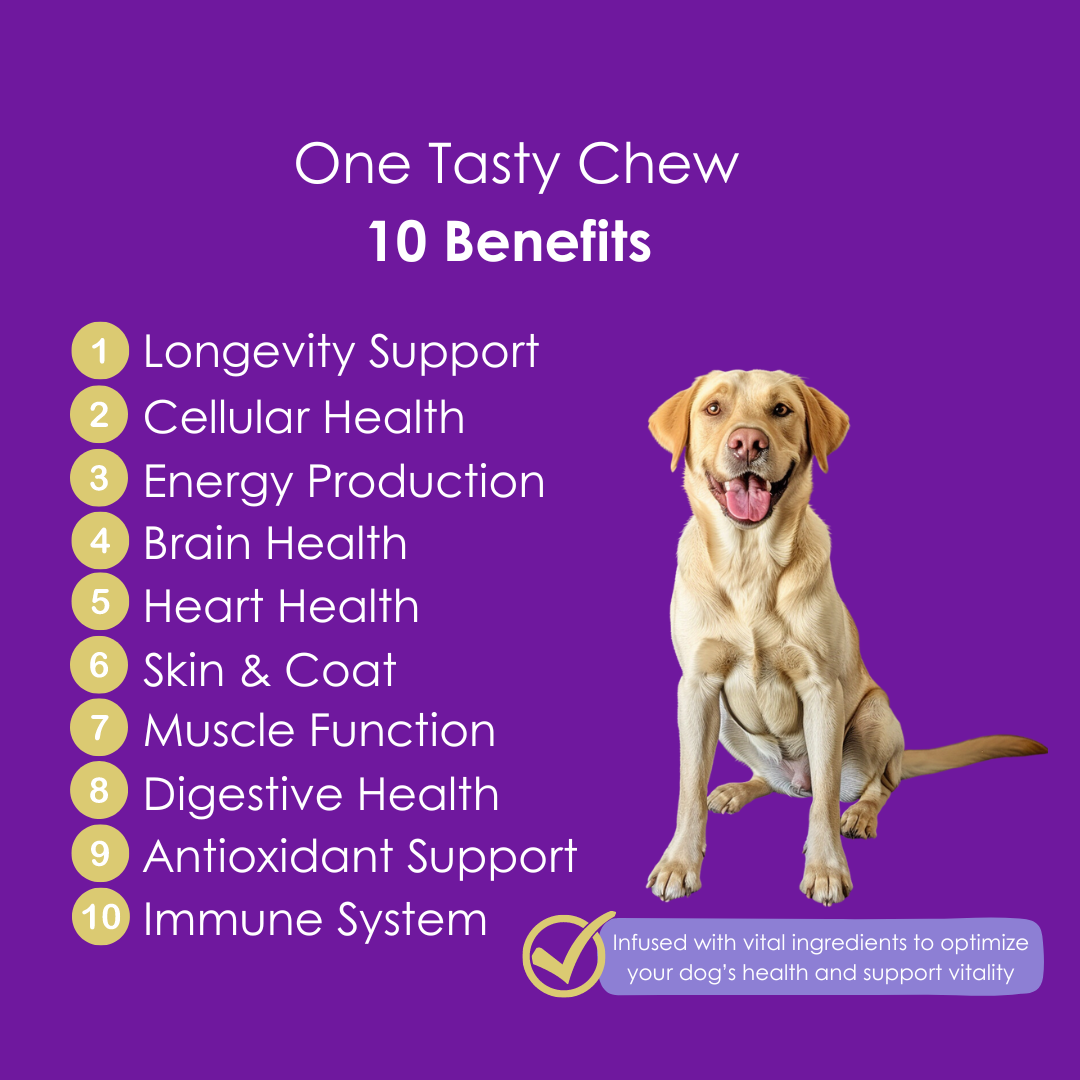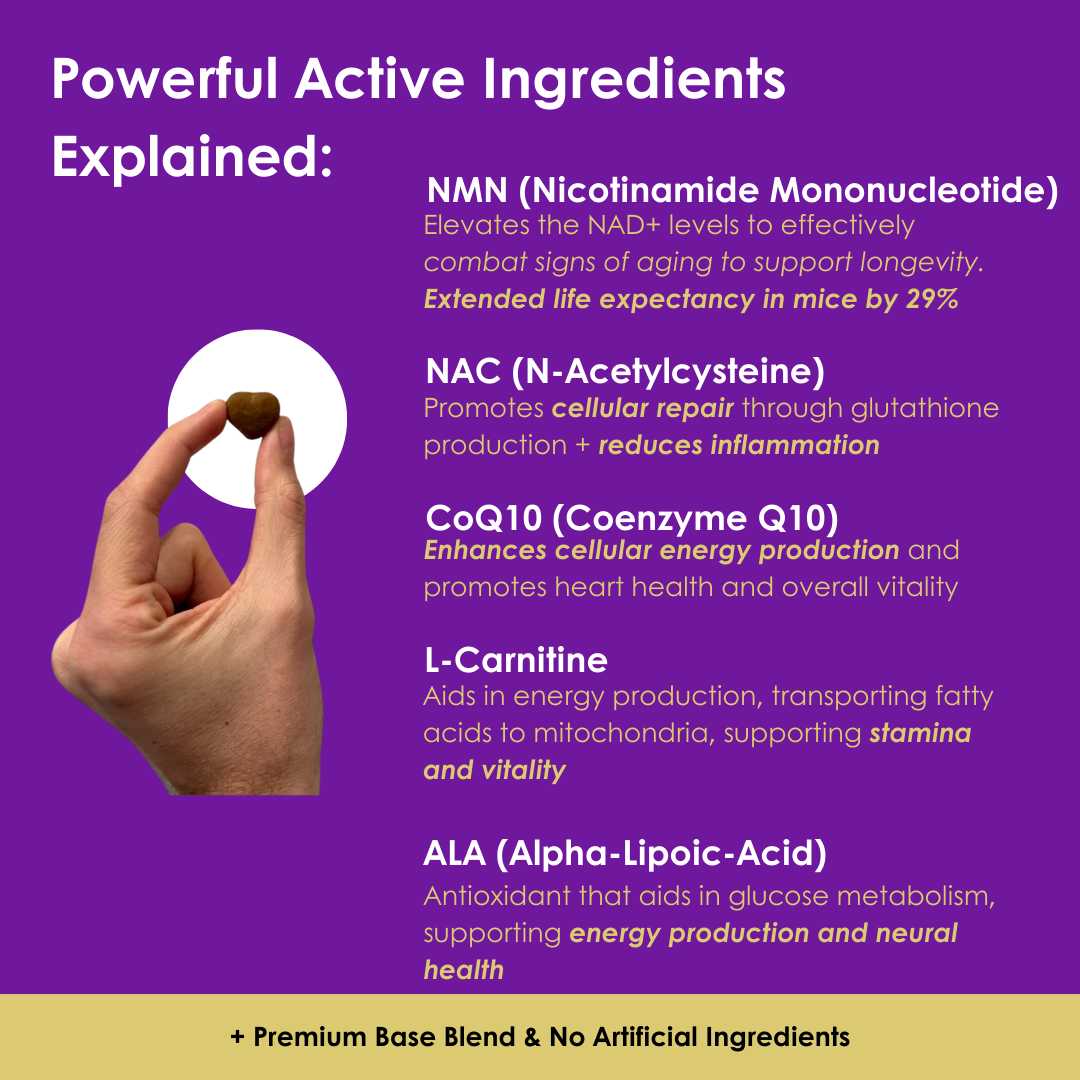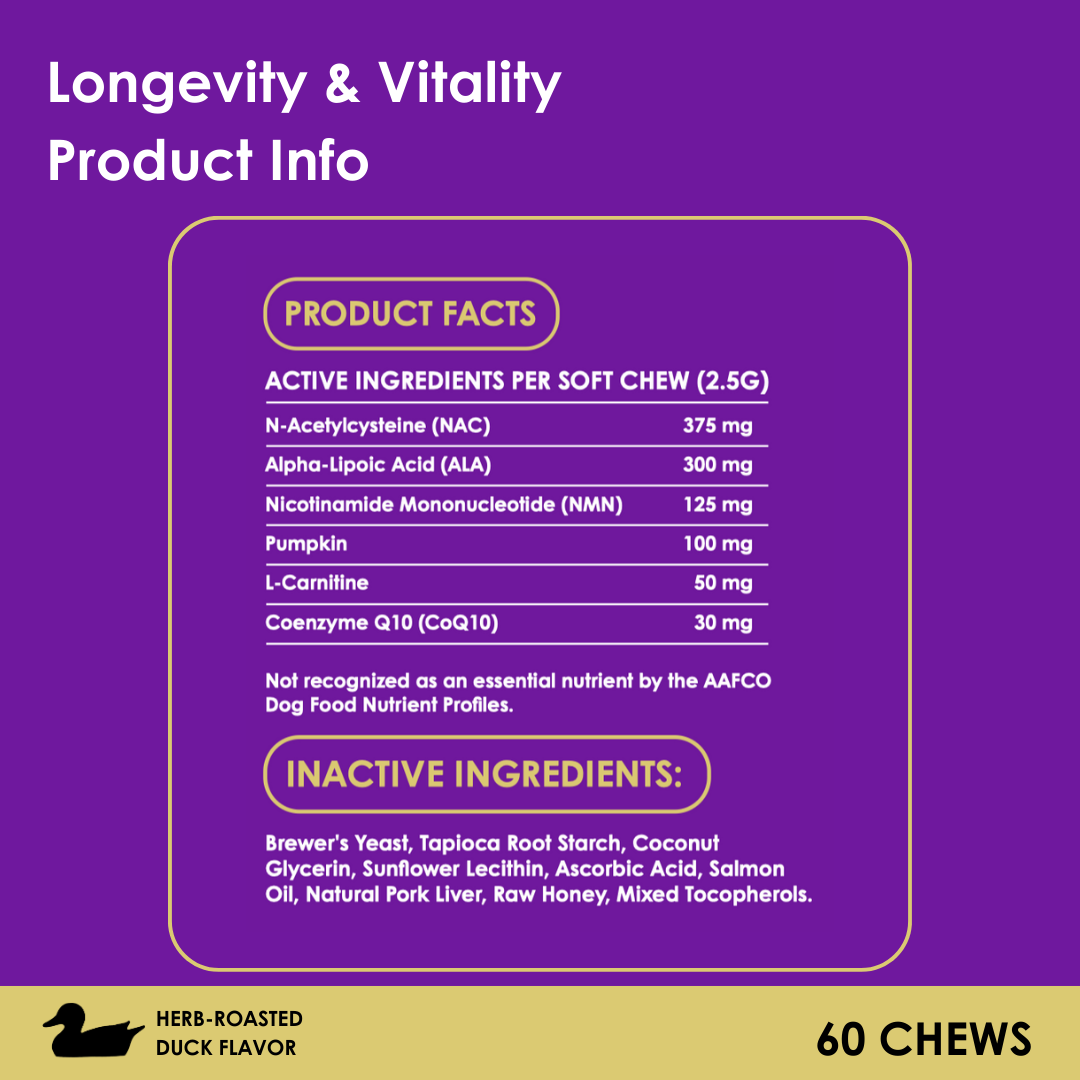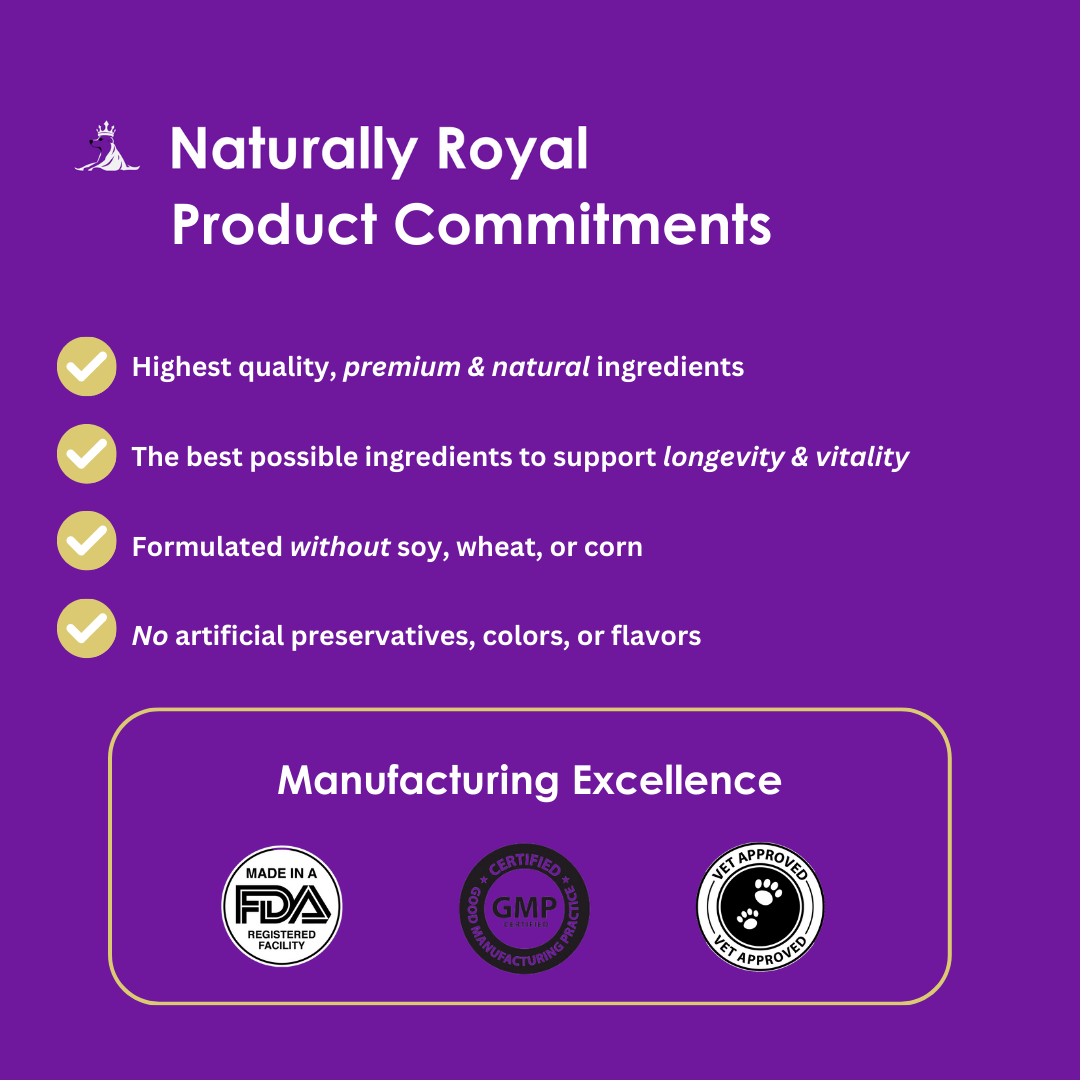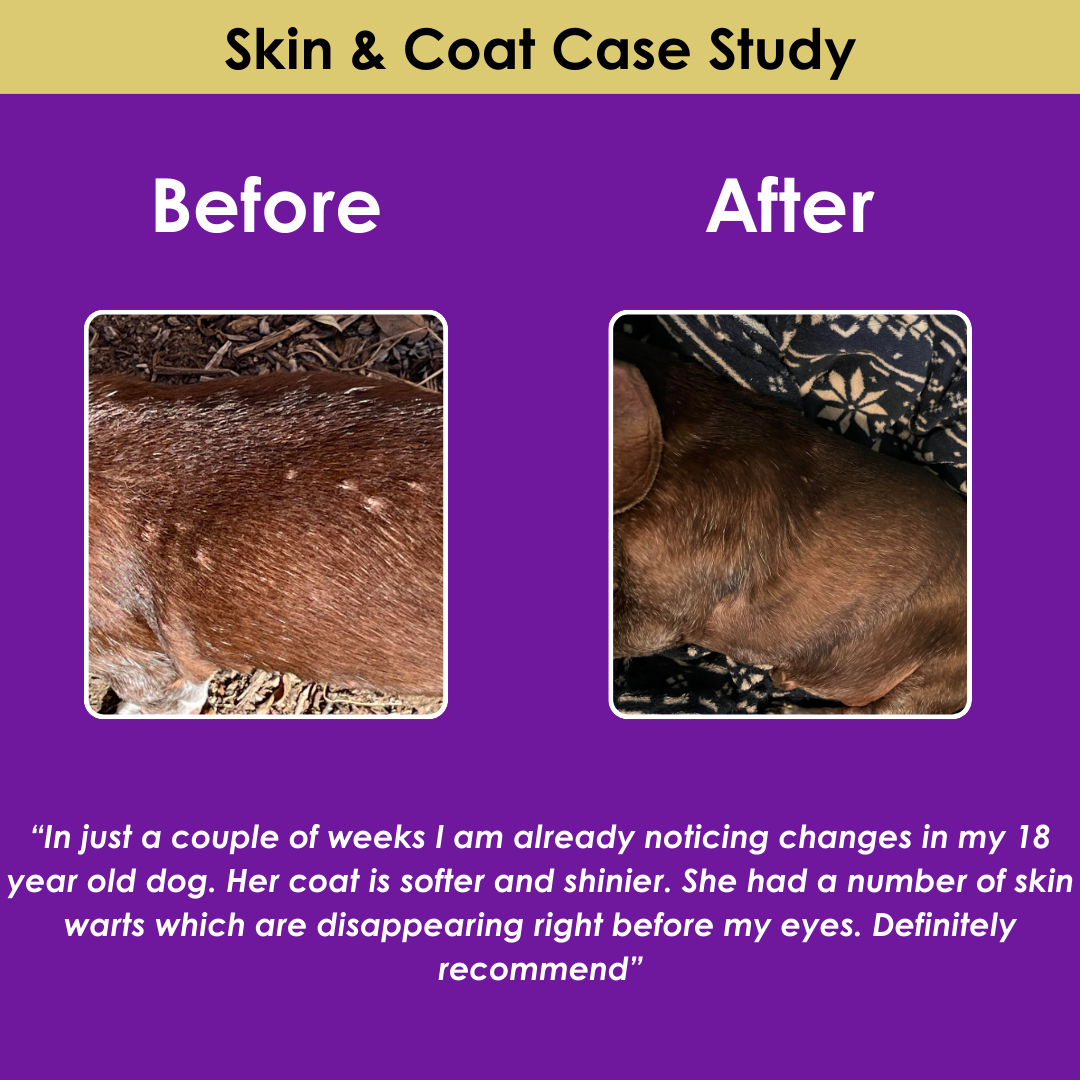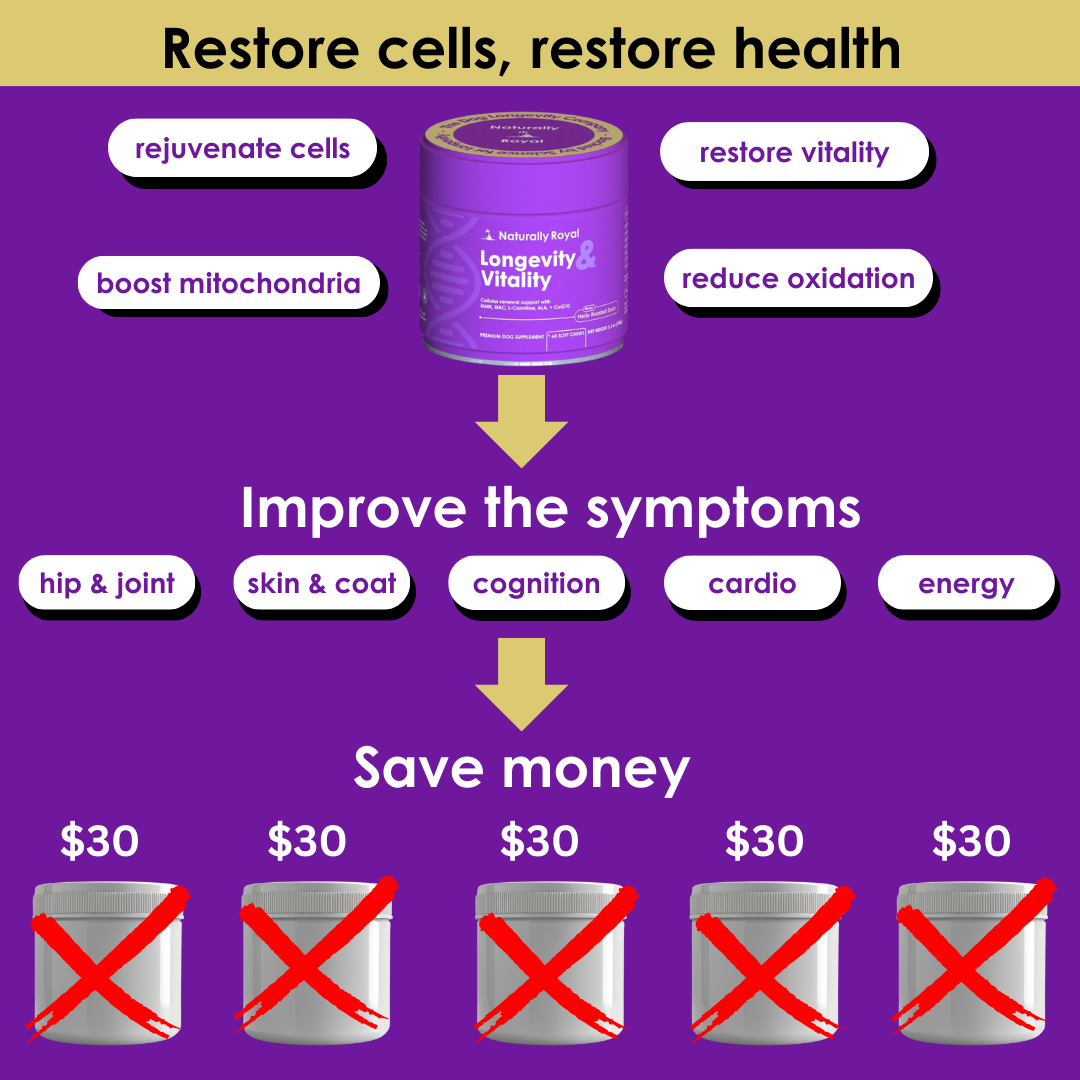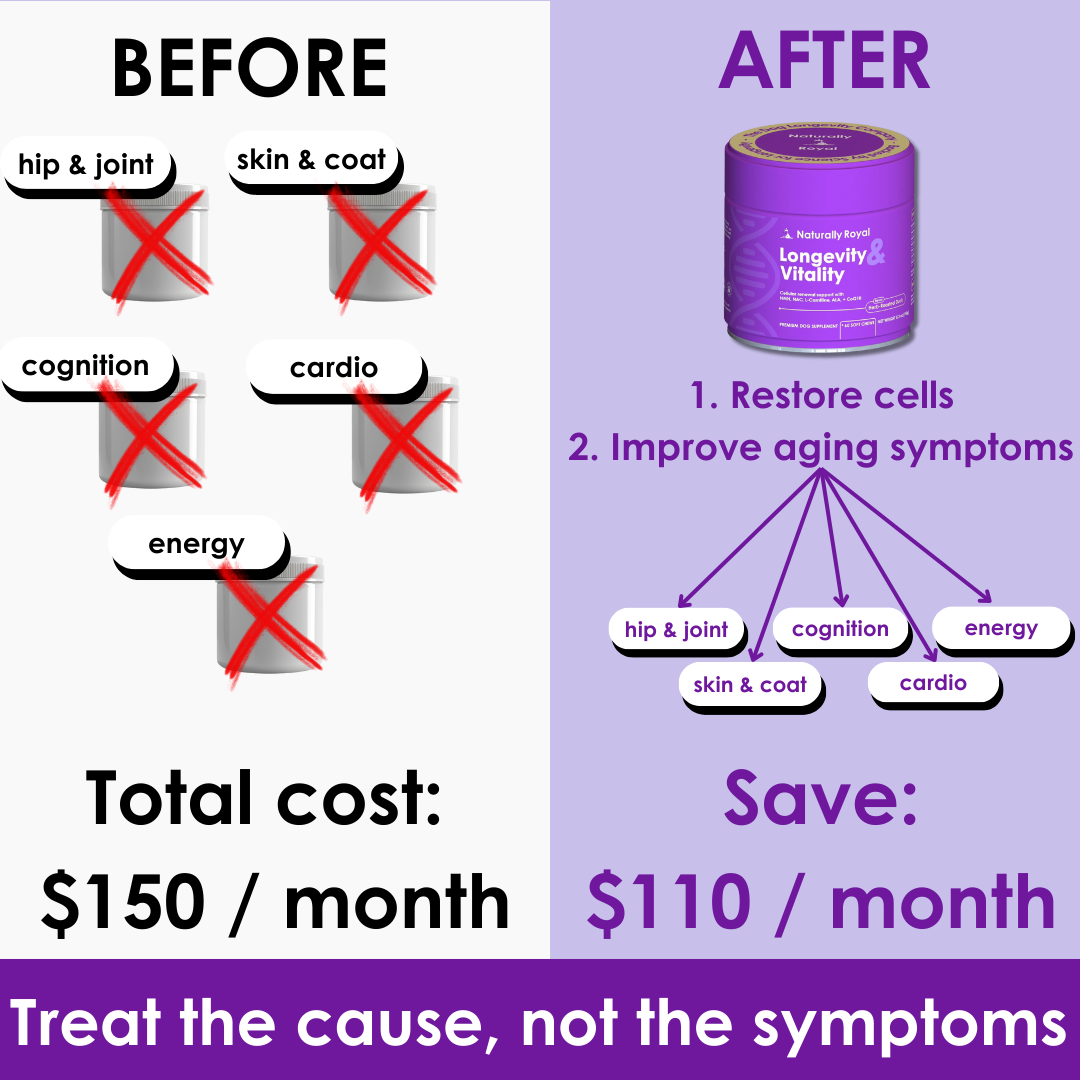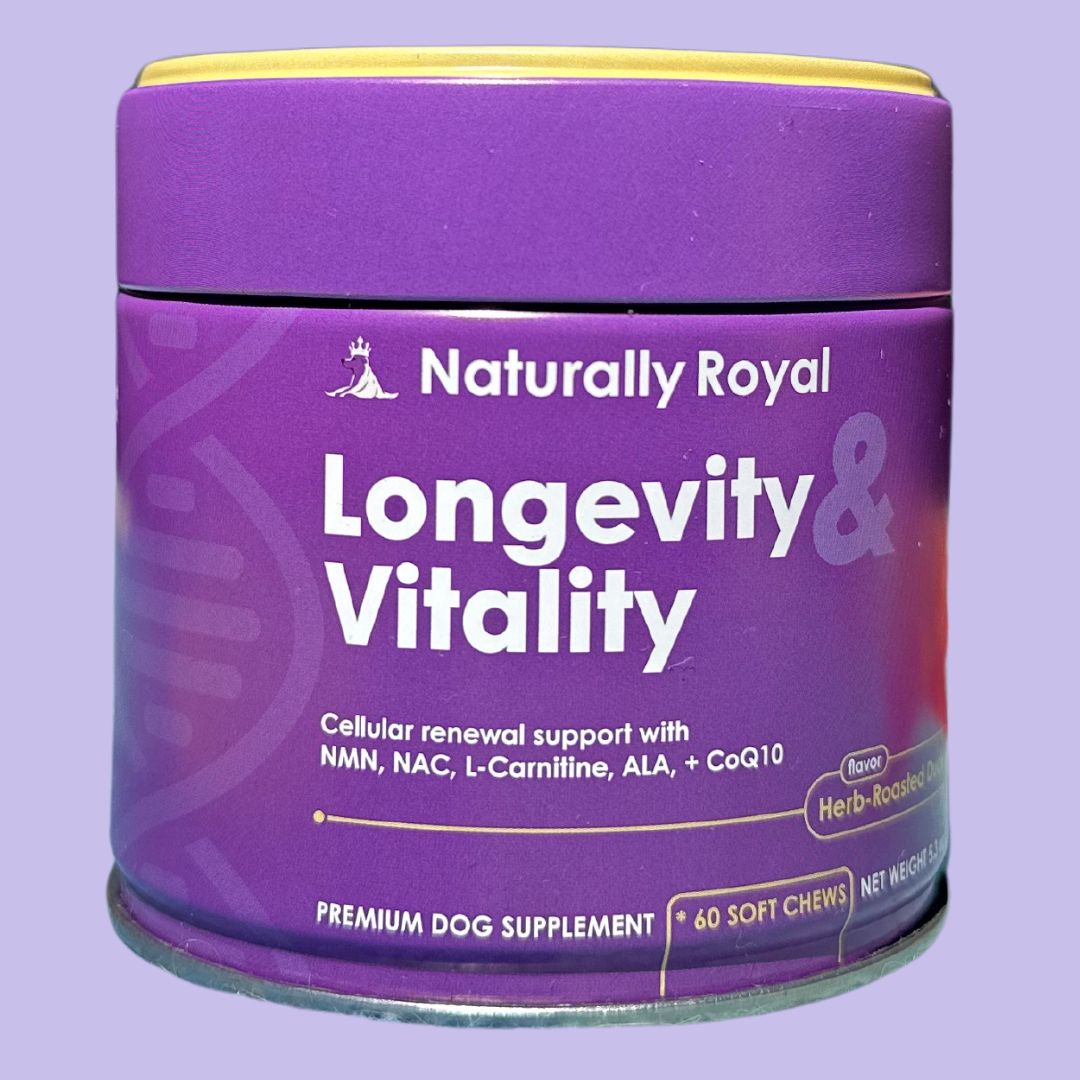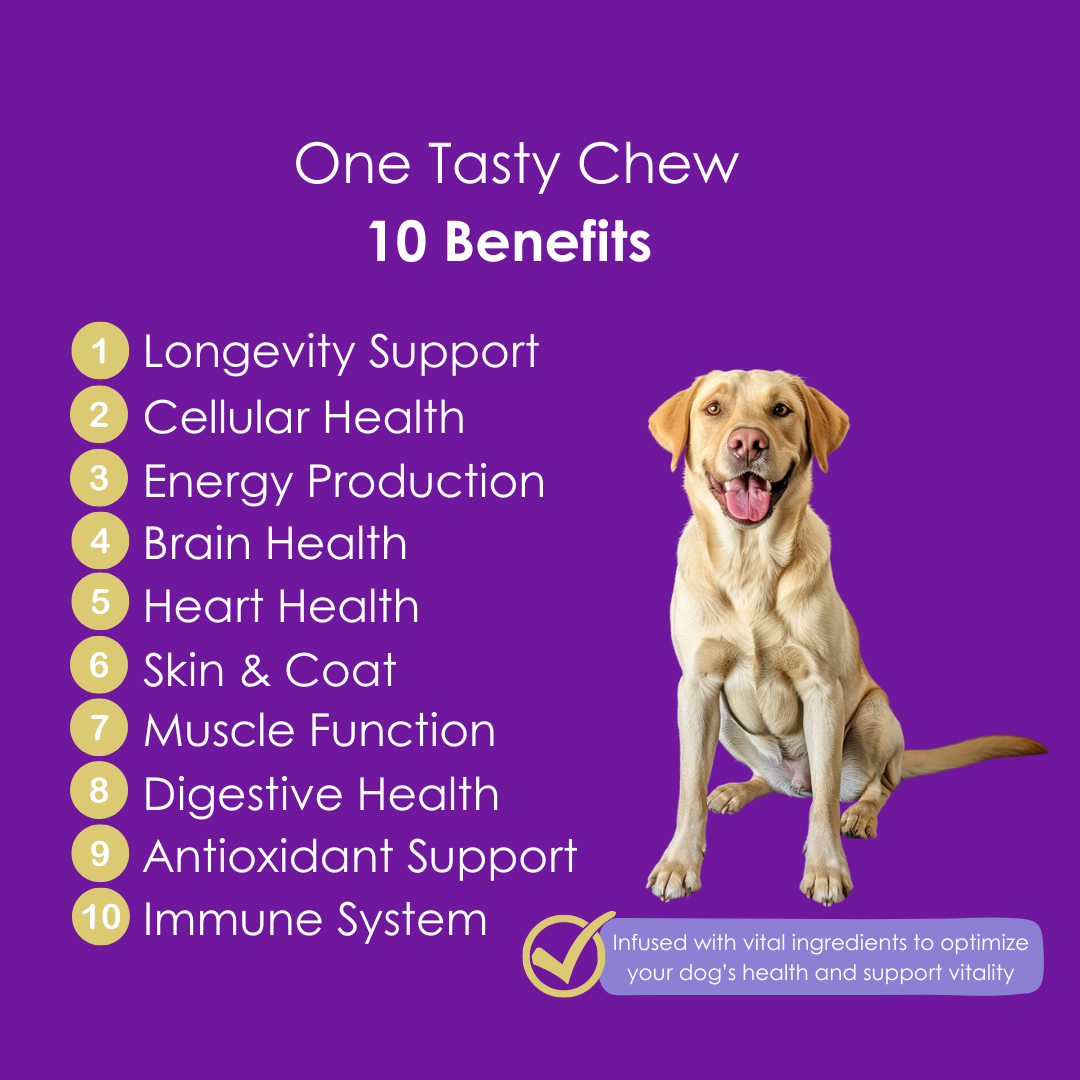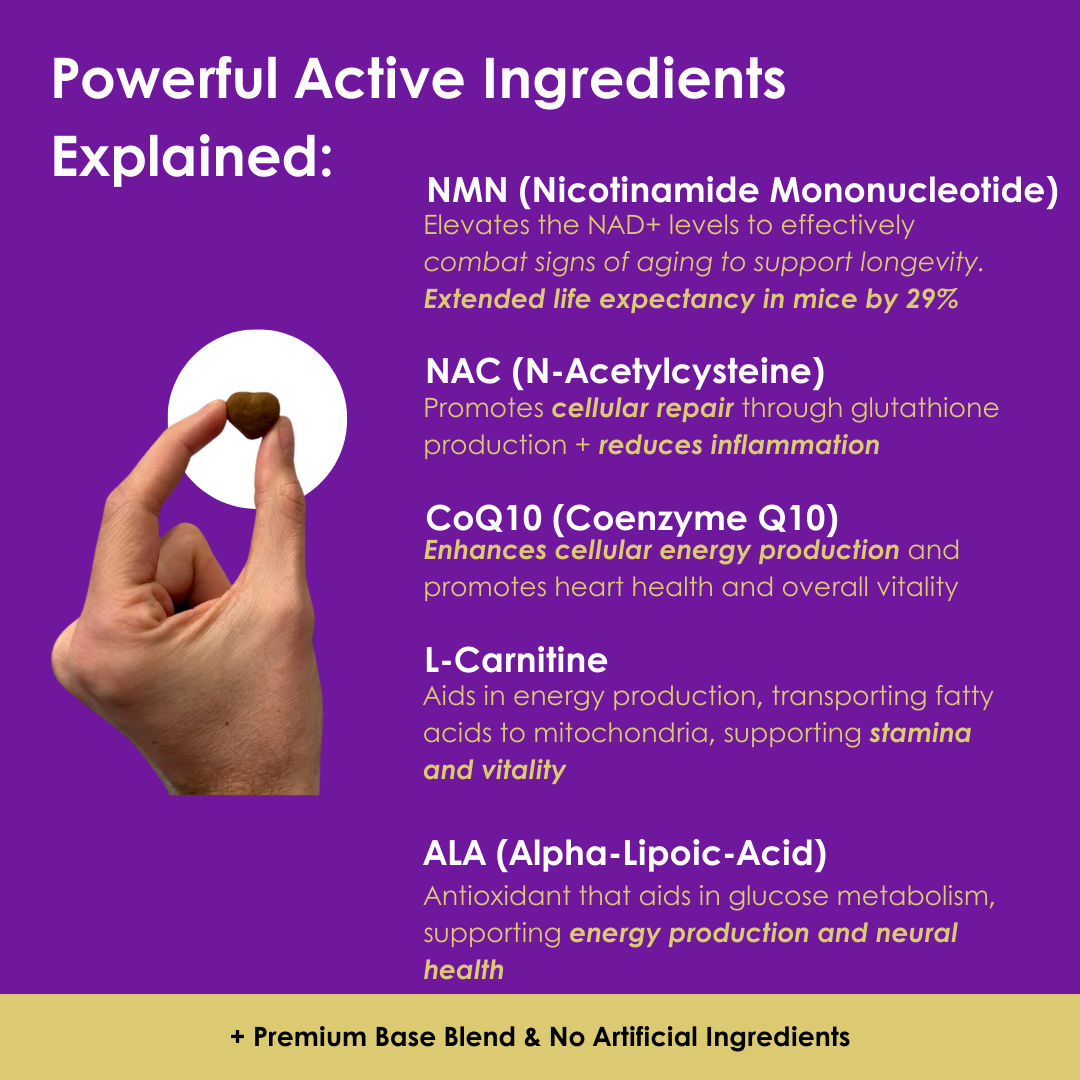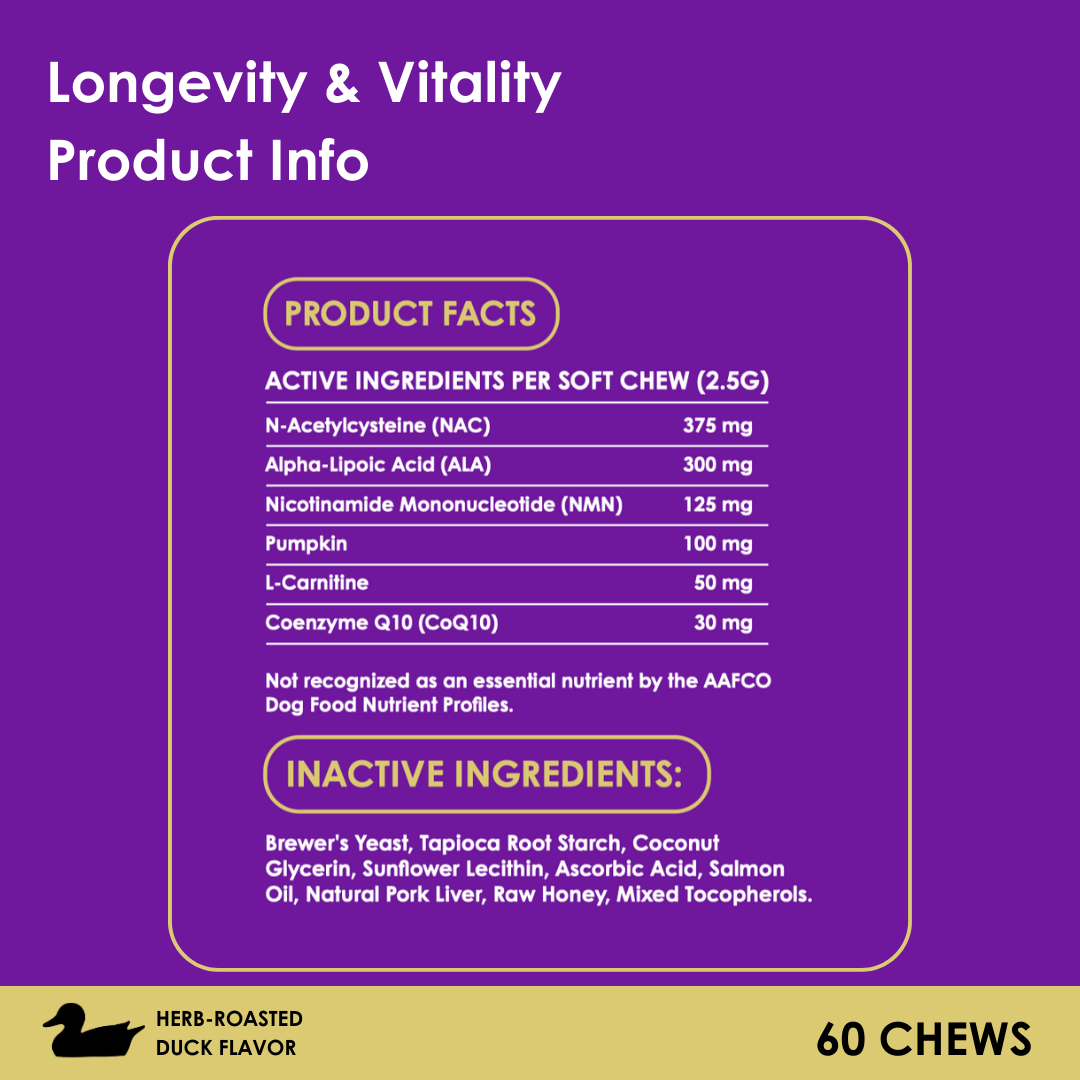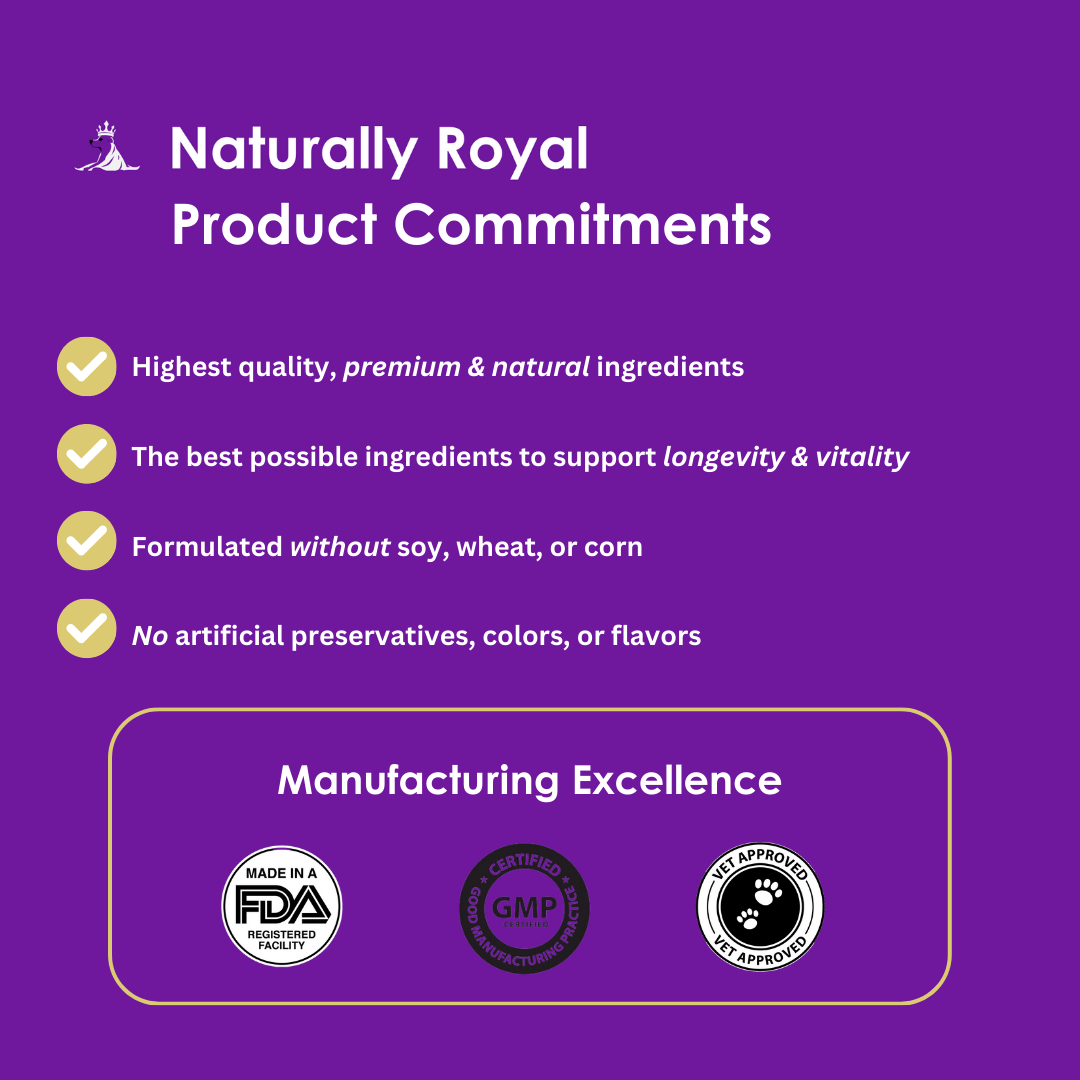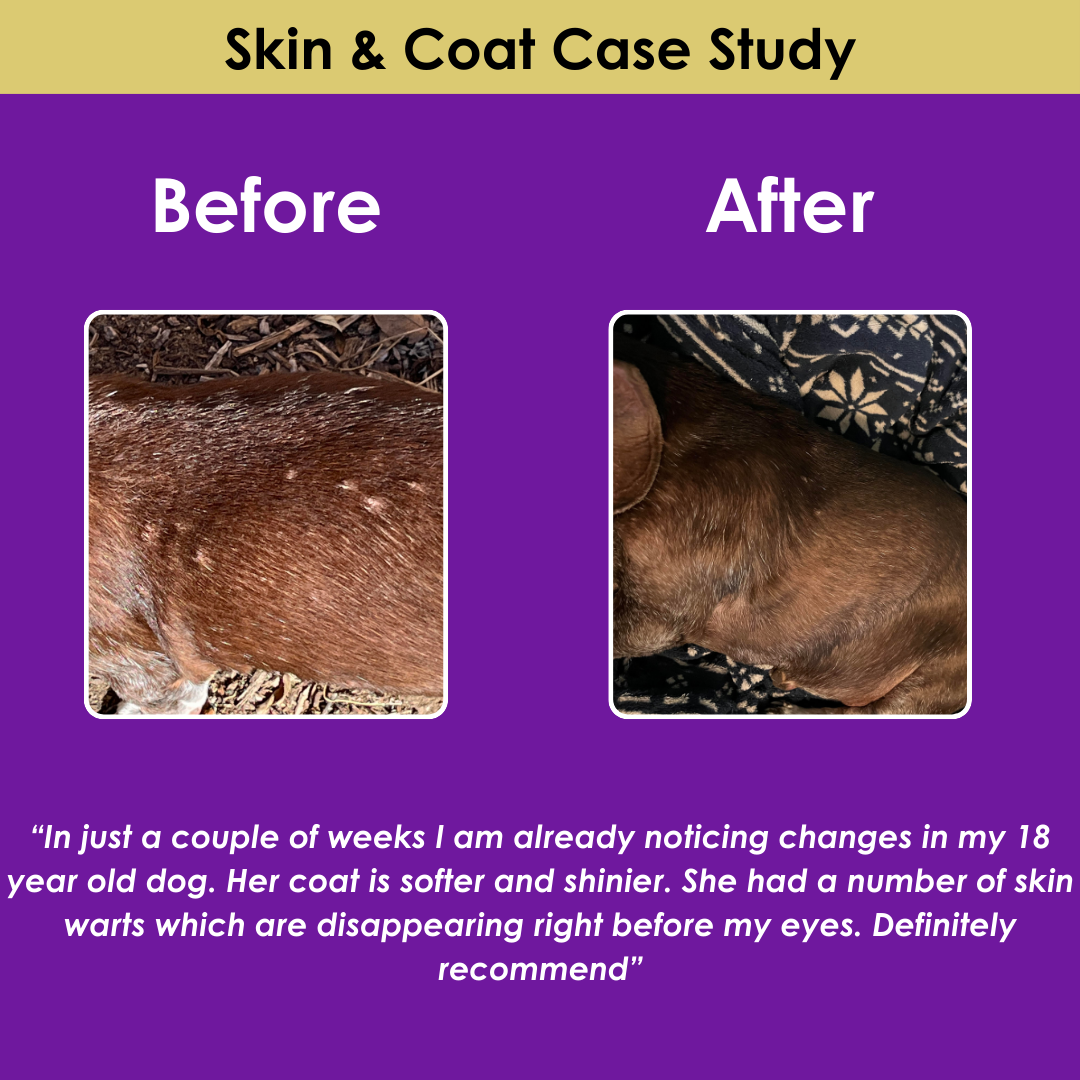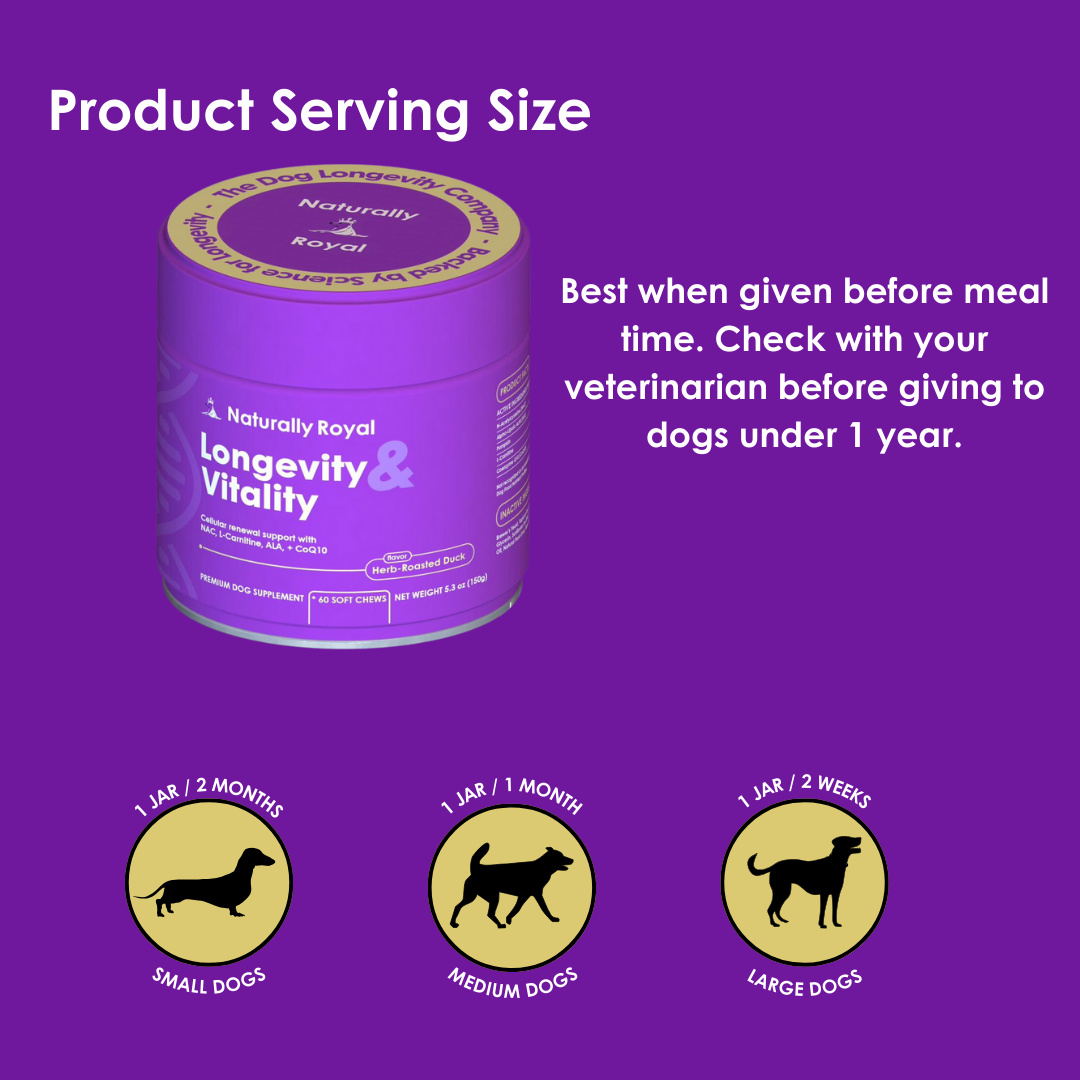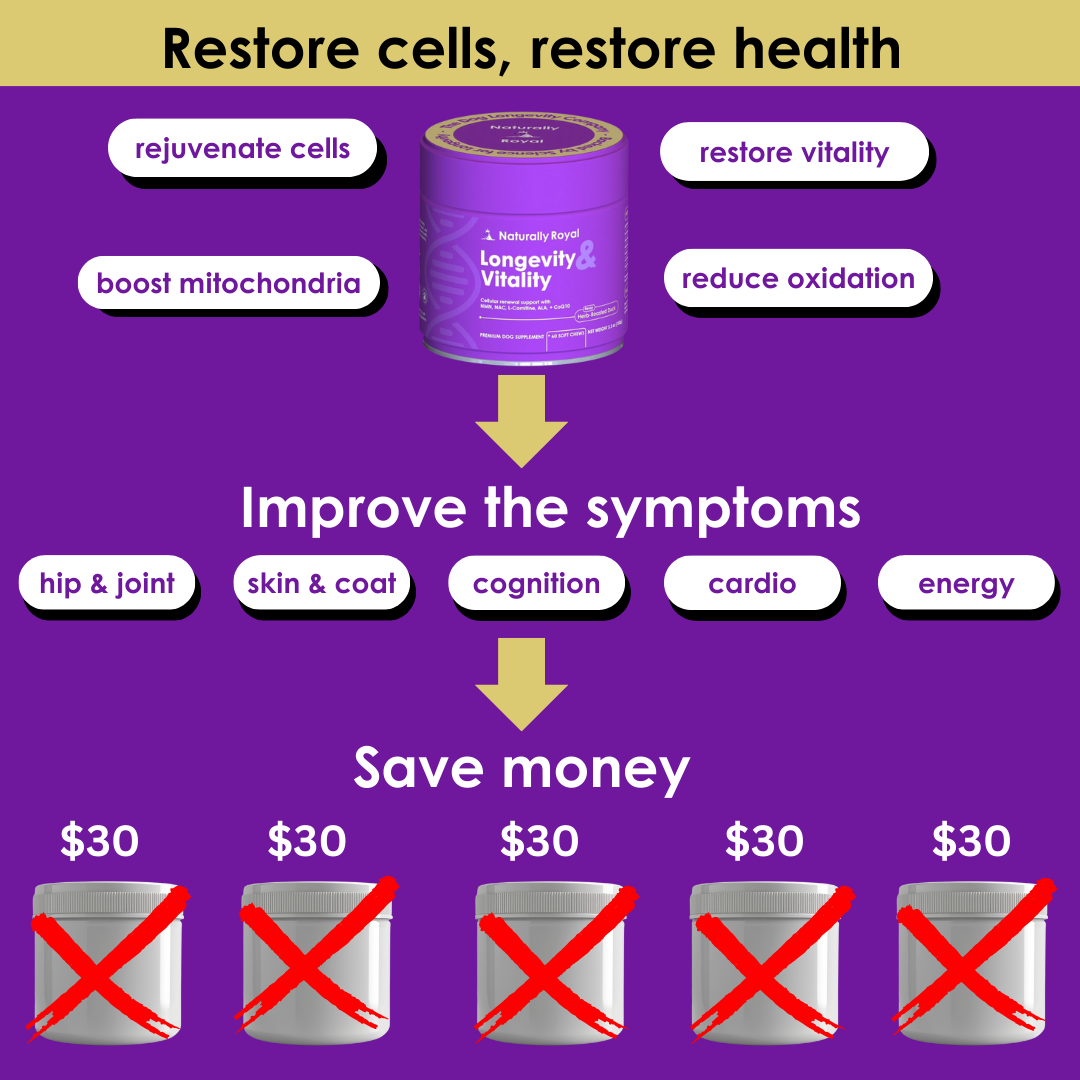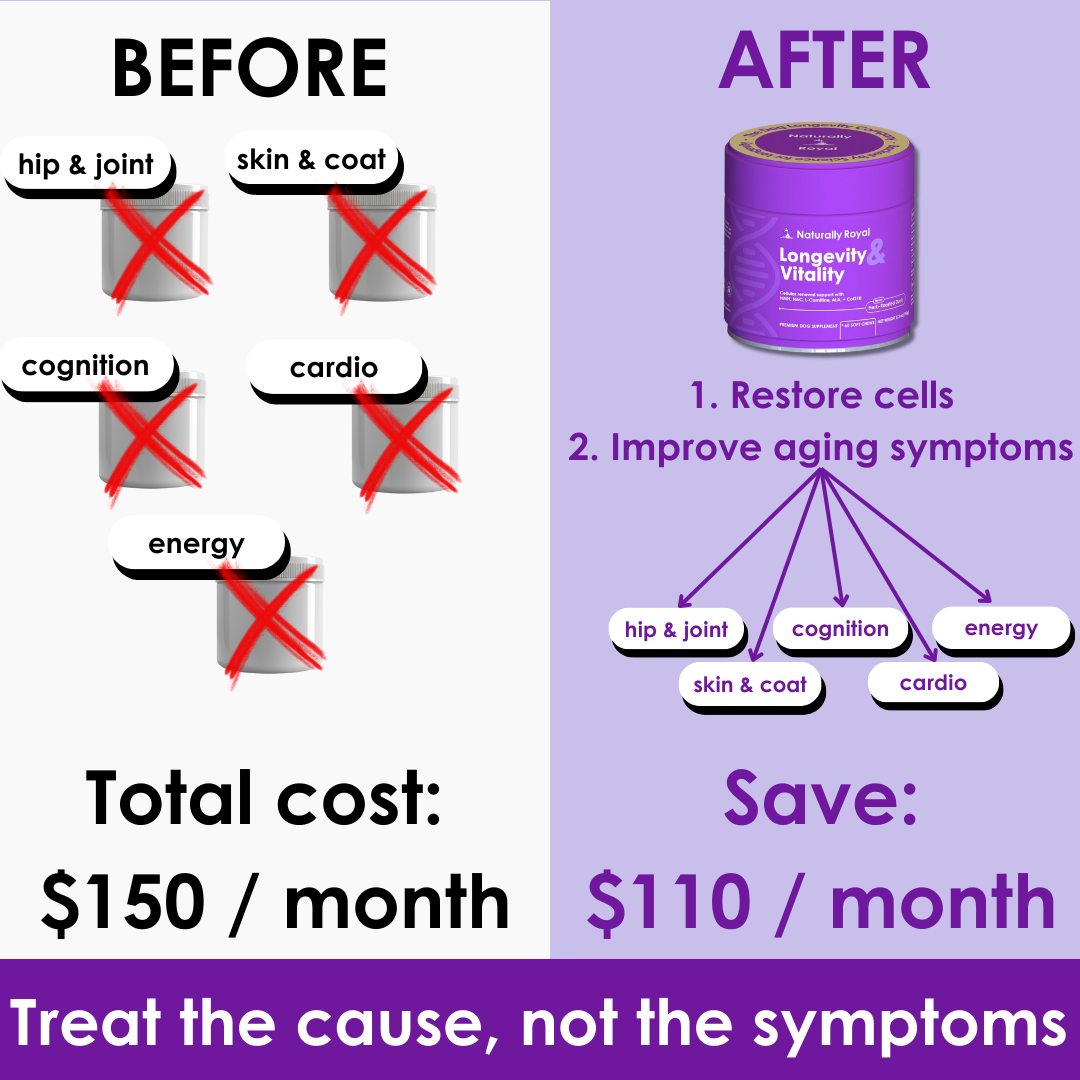Top 3 Interventions for Cellular Aging
As dog parents, we all want our dogs to live long and healthy lives. Recent scientific advancements have shed light on the significant impact of cellular health on aging in dogs. Understanding the cellular mechanisms behind aging can help us identify effective interventions to support our dogs' longevity. Let's explore how cellular health influences aging and discuss the top three interventions that can make a meaningful difference.
Understanding Cellular Health and Aging
Aging in dogs, like in humans, is a complex process influenced by various cellular factors. Key aspects include:
- DNA Damage: Over time, DNA sustains damage due to environmental factors and normal metabolic processes, which can lead to cellular dysfunction and aging.
- Oxidative Stress: Reactive oxygen species (ROS) are produced during normal cellular metabolism. Excessive ROS can damage cells, proteins, and DNA, contributing to aging and disease.
- Mitochondrial Dysfunction: Mitochondria, the "powerhouses" of the cell, become less efficient with age, affecting energy production and increasing oxidative stress.
- Inflammation: Chronic low-grade inflammation is associated with aging and can damage healthy cells and tissues.
Top 3 Interventions for Enhancing Cellular Health
-
Antioxidant Supplementation
- How It Helps: Antioxidants neutralize ROS, reducing oxidative stress and its damaging effects on cells. This can slow down the aging process and support overall health.
-
Interventions:
- Vitamin E and C: These vitamins are powerful antioxidants. Supplements can help maintain skin health, boost the immune system, and protect against cellular damage.
- Omega-3 Fatty Acids: Found in fish oil, these fatty acids reduce inflammation and have antioxidant properties, supporting heart health and reducing the risk of chronic diseases.
-
Mitochondrial Support
- How It Helps: Enhancing mitochondrial function can improve energy production, reduce oxidative stress, and slow down cellular aging.
-
Interventions:
- Coenzyme Q10 (CoQ10): CoQ10 is involved in energy production and has antioxidant properties. Supplementation can support heart health and improve mitochondrial function.
- L-Carnitine: This amino acid plays a crucial role in fatty acid metabolism within mitochondria. It can improve energy levels and support muscle health, particularly in aging dogs.
- Nicotinamide Mononucleotide (NMN): NMN is a precursor to NAD+, a molecule vital for mitochondrial function and energy metabolism. Supplementation with NMN can help maintain NAD+ levels, supporting cellular energy production and reducing age-related decline.
-
Reducing Inflammation
- How It Helps: Lowering inflammation can protect cells from damage, reduce the risk of chronic diseases, and extend healthy lifespan.
-
Interventions:
- Dietary Changes: Incorporating anti-inflammatory foods like leafy greens, blueberries, and turmeric into your dog's diet can help reduce inflammation.
- Probiotics: Gut health is closely linked to inflammation. Probiotics can help maintain a healthy gut microbiome, reducing inflammation and supporting immune function.
Incorporating Interventions into Daily Life
Implementing these interventions requires a multifaceted approach, including dietary changes, supplements, and regular veterinary check-ups. It's essential to consult with a veterinarian before introducing new supplements or making significant dietary changes to ensure they align with your dog's specific health needs.


